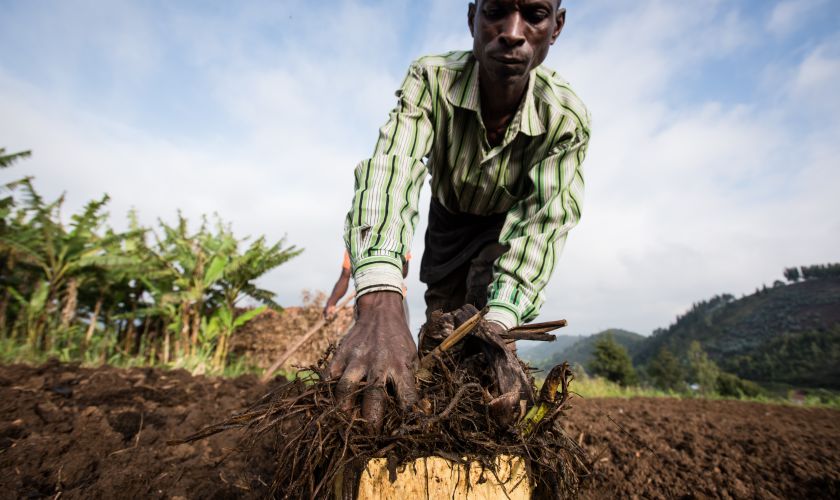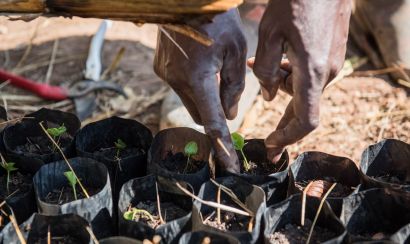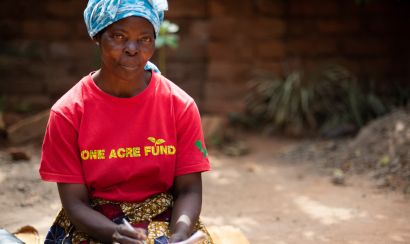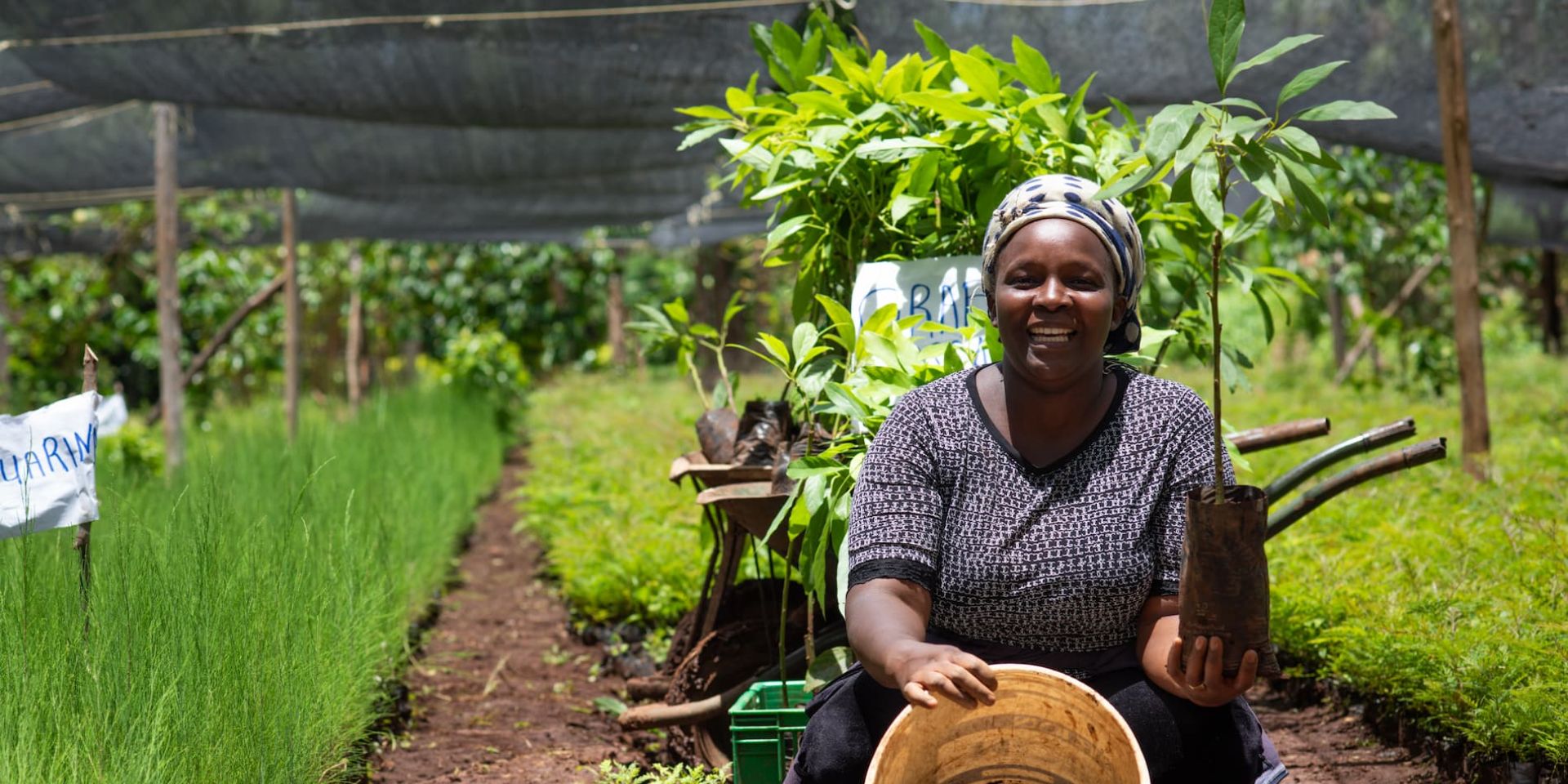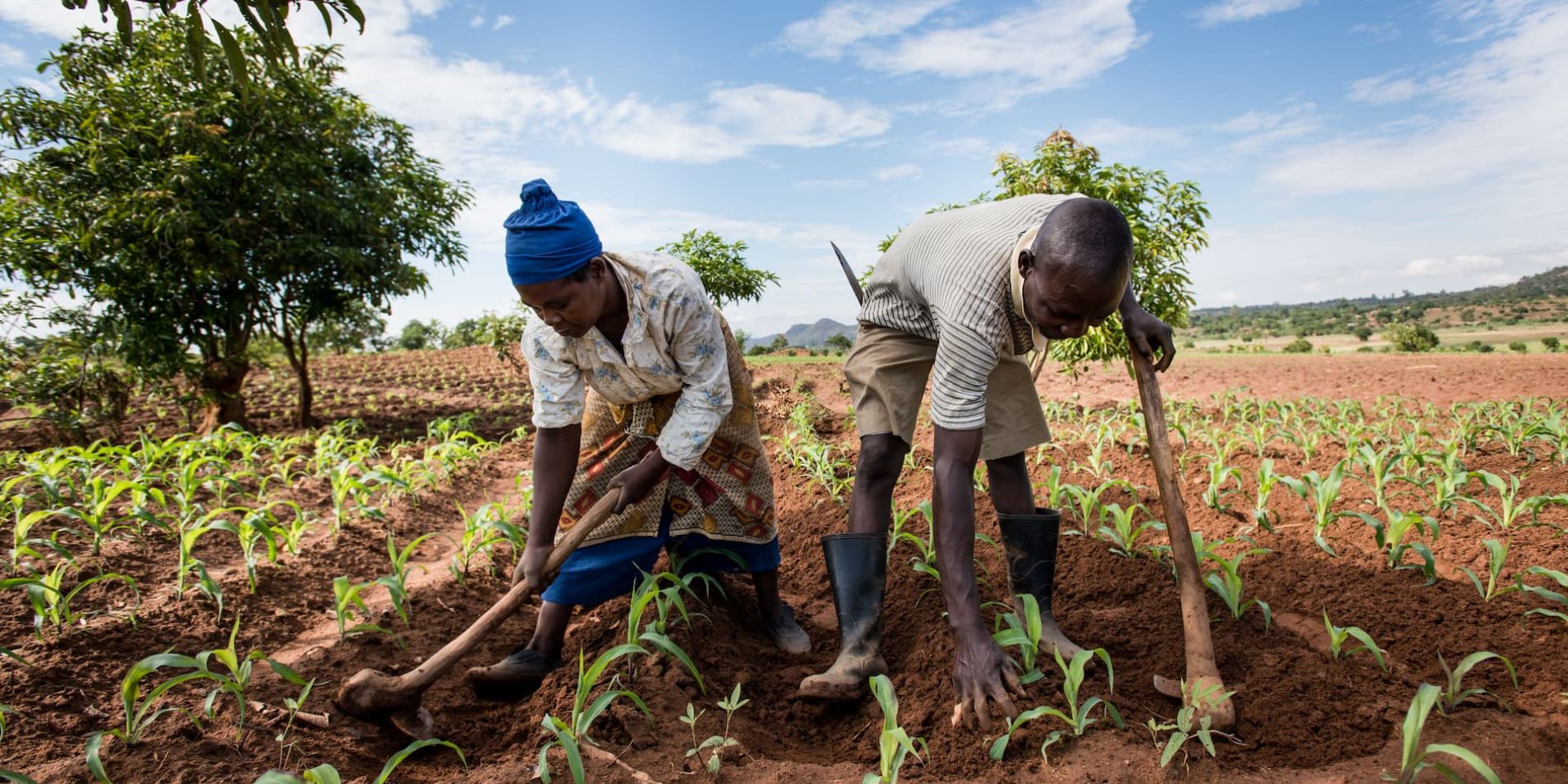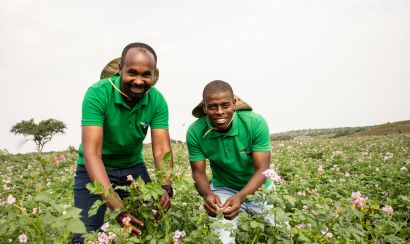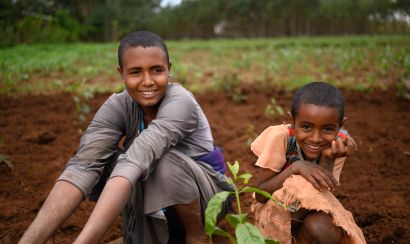Climate resilience
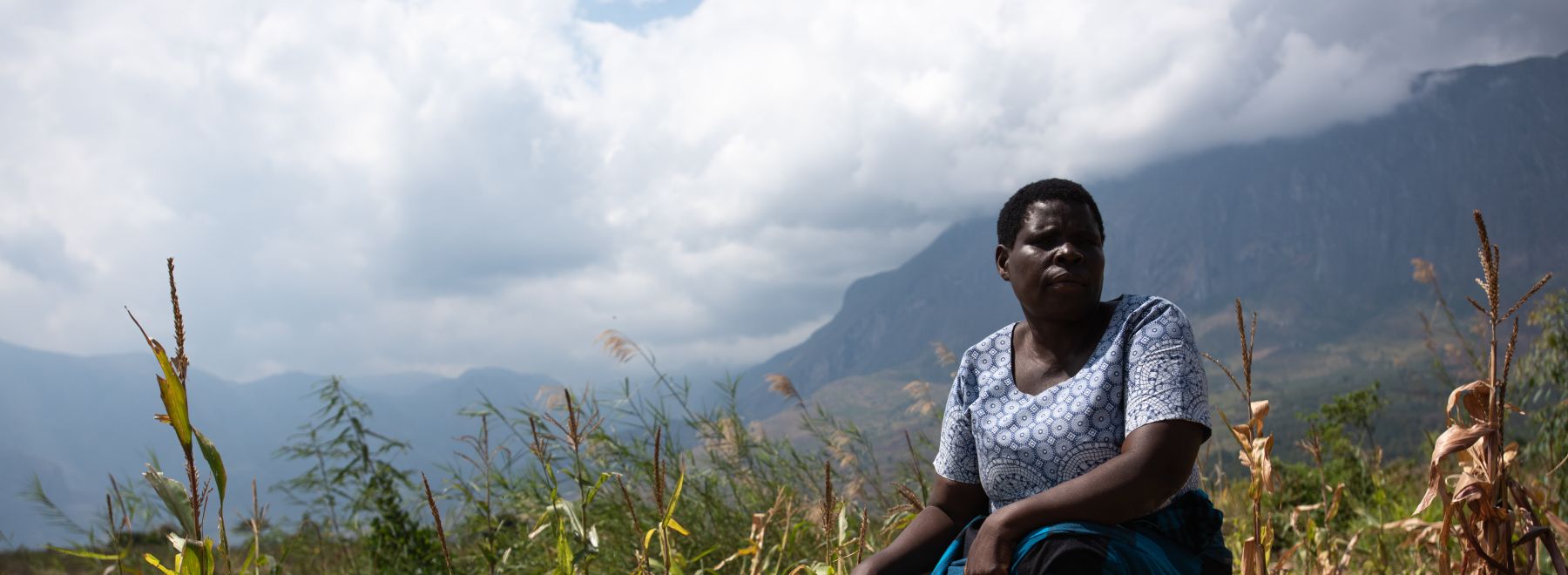
Farmers are on the front lines of climate change. They must adapt to the changing weather now, and keep their land sustainable for generations to come.
Smallholder farmers contribute little to climate change but are some of the worst impacted. Their entire livelihood is often dependent on rainfall and an acre or two of land. Over 2 billion people rely on smallholder farms for food and income. Despite that, less than 2% of global climate finance aids these farmers in adapting to climate change.
This is not a hypothetical future risk; it is a reality they are facing today. Smallholder farmers are witnessing devastating impacts on their crops, yields, diets, and families.
Our 10-year climate strategy supports smallholder farmers to build a prosperous future despite a changing climate. Tailored climate-smart farming trainings and quality inputs (including optimal seed choices) increase crop yields and diversity, bolstering incomes while tackling climate-related challenges like pests and extreme weather. And products like crop insurance help provide protection when disaster strikes.
And One Acre Fund farmers are at the forefront of one of the largest tree-planting efforts in Sub-Saharan Africa. By early 2024, 2.8 million farmers have planted 250 million trees, and we are positioned to plant 1 billion trees by 2030.
How do we measure our impact on climate resilience?
One Acre Fund runs multi-year studies of soil fertility, measuring soil organic matter, nutrients, and acidity levels (which allows plants to soak up nutrients). In 2023, One Acre Fund supported over 1 million farmers in adopting at least one soil health practice, such as reducing soil acidity via agricultural lime, applying compost to their fields to increase organic matter, or undertaking erosion control practices. This is a key area of focus, as healthier soils worldwide could store up to 20% of current global carbon emissions - while also helping farmers to increase their yields.
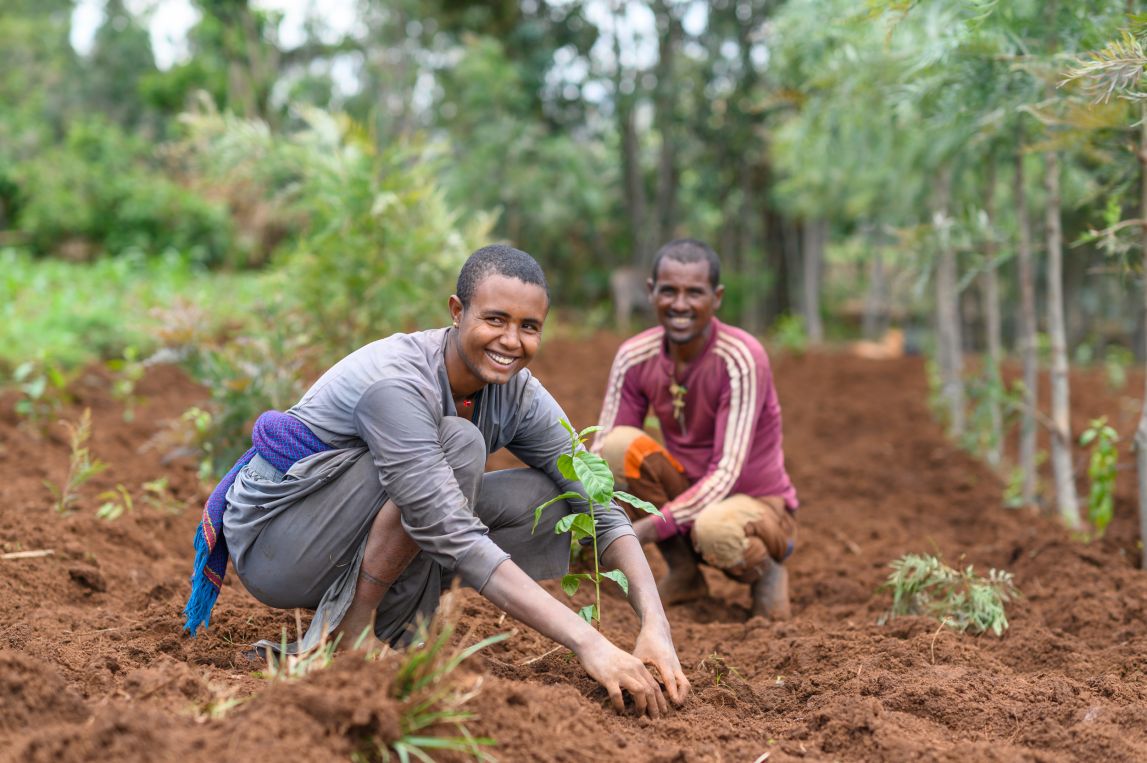
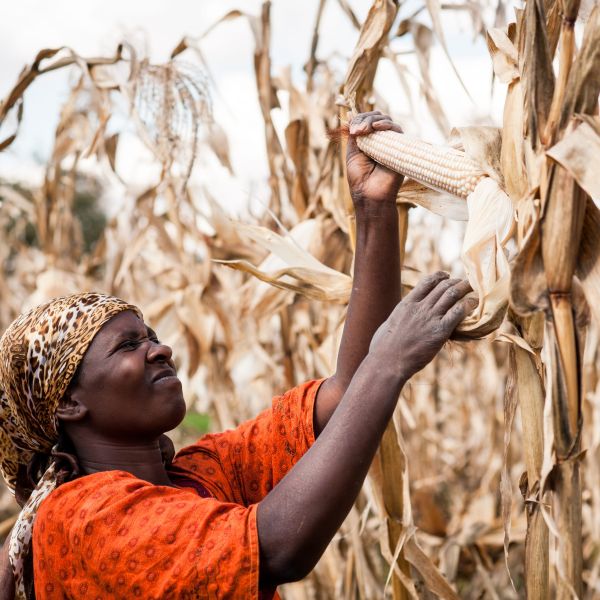
One Acre Fund's Global Croptake
Our Global Croptake warns of a global decline in crop yields of 3–12% by 2050 and 11–25% by 2100. This will have a direct effect on smallholder farmers on the frontlines. Learn more here
Explore more of our climate resilience work
Our work focuses on three key areas for climate impact: Adaptation, mitigation and leadership.
One Acre Fund is focused on helping farmers adapt to the rapidly changing climate. Adaption is critical - hundreds of millions of people in Sub-Saharan Africa depend on agriculture to support their families.
Climate mitigation
One Acre Fund supports smallholder farmers to mitigate the impacts of the climate crisis through on-farm tree planting and soil health practices that sequester carbon from the atmosphere.
Climate leadership
One Acre Fund advocates for smallholder farmers to be put front and center of global climate decisions. This is pivotal for achieving global climate goals. In our work we collaborate with farmers to develop solutions that help them build their climate resilience.
Invest in Climate Resilience
Small-scale farmers are stewards of our climate. Make an investment in the future with a monthly gift.
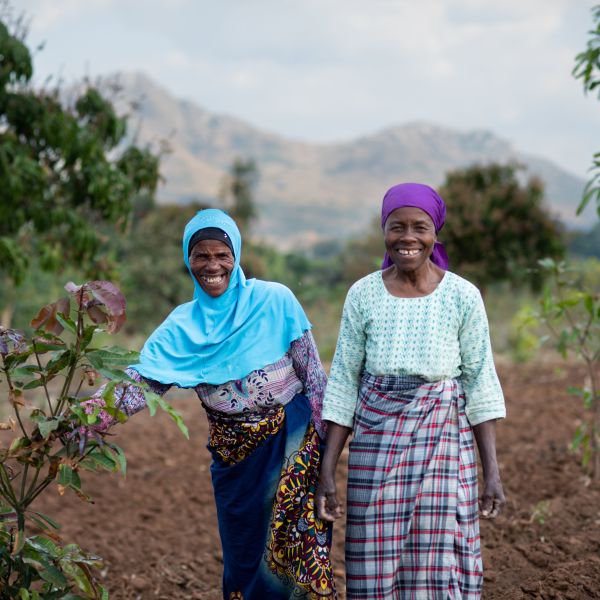
See our climate resilience work in action
More Than A Tree
We do tree planting differently. Our initiative to plant 1 billion trees is led by smallholder farmers and every seedling planted is an opportunity for them and their families to prosper.
One Acre Fund Re: Safeguarding smallholder farmers in the face of climate impacts
We are excited to announce the launch of One Acre Fund Re, a reinsurance facility that will safeguard smallholder farmers in the face of extreme weather events’ devastating impacts on crop yields.
Why we’re introducing disease-resistant potato seeds in Rwanda
In 2022, One Acre Fund Rwanda launched a program to distribute high-yielding, disease-resistant potato seed to the country’s smallholders to improve harvests and incomes.
One Acre Fund's Climate Commitments
We’re launching a 10-year climate strategy committed to building the resilience of smallholder farmers in the face of a changing climate.

